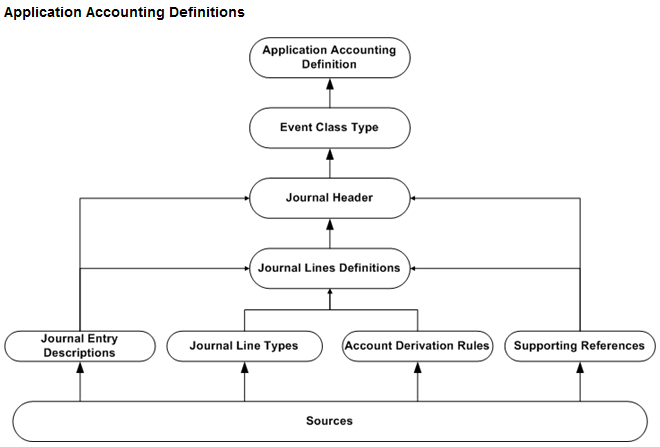Content

Part-time, non-exempt employees are paid in quarter hour increments, therefore, fixed percentage appointments in UCPath must have a percentage amount that is divisible by quarter hour increments. The recommended practice is to determine the set work hours scheduled per week and divide by 40 to determine the actual percentage of time scheduled. For example, 43% time equates to 17.20 hours per week which is not a quarter hour increment (quarter hour increments would include 17 hours, or 17.25 hours). A part-time, non-exempt employee could work a regular schedule of 17 hours per week (42.5%).
- Therefore, the income of both exempt and non-exempt employees is taxable based on tax brackets.
- These salaries may amount to more than you would pay nonexempt employees for their regular and overtime hours combined.
- Work which is scheduled during the weekend hours on the basis of convenience to the employee shall not be considered an assigned weekend shift for the purpose of this policy.
- As discussed above, there are different labor laws in Florida that protect employees and employers’ rights in proper payment of wages and other working conditions.
- Exempt employees are usually executives, professionals, administrators, and computer employees.
- An employee who receives a shift differential for an assigned evening or night shift shall receive the differential for all overtime worked.
- Work which is scheduled during the evening or night hours on the basis of convenience to the employee shall not be considered an assigned evening or night shift for the purpose of this policy.
The Pennsylvania Department of Labor & Industry does not enforce city ordinances. Just because you are paid a salary does not mean that you are not entitled to receive overtime. Some employees are exempt from overtime, such as executive, administrative, and professional employees, as well as supervisors who are employed solely to supervise. Your actual daily job duties and what your employment contract states determine if you are eligible for overtime. Federal law says employees who work more than 40 hours a week are entitled to time-and-half pay for the extra hours.
I am a farm laborer. Am I entitled to overtime?
Exempt employees must meet the Department of Labor’s salary level, salary base and duties criteria. The Fair Labor Standards Act is a U.S. law that is intended to protect workers against certain unfair pay practices. Investopedia requires writers https://business-accounting.net/ to use primary sources to support their work. These include white papers, government data, original reporting, and interviews with industry experts. We also reference original research from other reputable publishers where appropriate.
What are the expectations of exempt employees?
Exempt employees are paid an established monthly or annual salary and are expected to fulfill the duties of their positions regardless of the hours worked. They do not receive premium overtime, straight overtime or compensatory time for working more than 40 hours in a work week.
As long as the staff is salaried, there’s nothing in federal law that prevents this. They earn a set amount every week regardless of how many hours they work or the quantity of work they complete. Currently, exempt employees have to earn a salary of at least $455 a week. Administrators, executives and professionals, such as scientists, can be exempt, but not waitstaff or janitors. Non-exempt employees should be instructed not to perform work beyond their regular work schedule unless they receive prior approval from their supervisor. If an employee fails to obtain approval but performs work, he or she must still be compensated for that time, but the employer may address the situation as a disciplinary matter.
Key Organizations for Earned sick time
Employers are not required to give breaks for employees 18 and over. If your employer allows breaks, and they last less than 20 minutes, you must be paid for the break. If your employer allows meal periods, the employer is not required to pay you for your meal period if you do not work during your meal period and it lasts more than 20 minutes.
Usually, the job duties of the traditional «learned professions» are exempt under the FLSA. If work is professionally 4 reasons why companies can ask exempt employees to work for free exempt, it is likely intellectual in nature. These jobs require discretion, judgment, and specialized education.
Lunch Break Labor Laws in Florida
Job duties qualify as exempt executive duties if the employee supervises two or more employees regularly. If the employees supervised are full-time, two meet the requirement. However, if the employees are part-time, the number of part-time employees supervised must be equivalent to at least two full-time employees.
- Additionally, many salaried workers carry out odd and sporadic hours both at the office, at home, and while traveling for business so it can be burdensome to record time on and off the job.
- Each inquiry requires a fact intensive inquiry and analysis to determine if the law is violated.
- At ADP, we believe sports and business both require the right approach.
- And if they’re considered exempt employees , by definition, they’re exempt from overtime pay.
- Salary-based employees generally may only have their pay deducted in certain circumstances.
- Employers are free to create work schedules for exempt employees however they see fit as long as they comply with any state and local regulations that govern meals and breaks.
This exception is very limited, so you should not assume you work in a “learned or artistic profession” just because your job involves some creativity. Compensatory time off in place of payment for overtime is not legal. Consult the Department of Labor’s website to stay current on any updates or proposed changes.
Exempt Professional Job Duties
On the other hand, if you just require employees to carry a cell phone or leave a number where they can be reached, they are likely able to use the time effectively for their own purposes, despite some limitations. If so, you would not need to pay for the time the employee spends available for a call. If you require employees to wait on the premises or very nearby to be called to duty, you need to pay for the on-call time. An example here would be a firefighter waiting to respond to an emergency.
